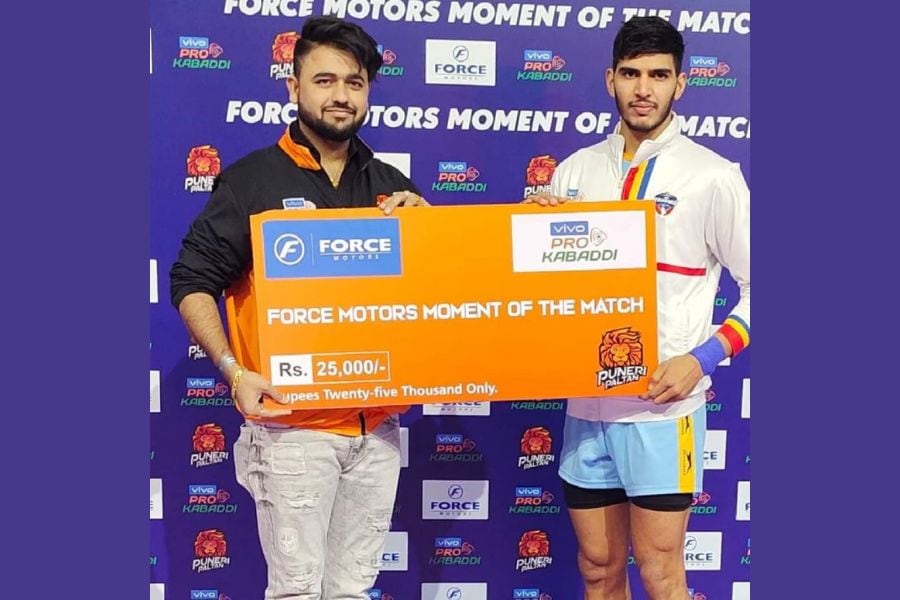The role of predictive analytics in fantasy sports: A conversation with Somesh Thakre
Predictive Analytics: Revolutionizing Strategies and Success in Fantasy Sports with Data-Driven Insights
 Somesh Thakre distributing the 'Moment of the Match' prize money to the winner at an event held in Hyderabad
Somesh Thakre distributing the 'Moment of the Match' prize money to the winner at an event held in Hyderabad
In the ever-evolving landscape of fantasy sports, predictive analytics is transforming the game, offering players a significant edge. To delve into how data-driven insights are reshaping fantasy sports, we turn to an influential thought leader in the field: Somesh Thakre. Thakre has carved out a remarkable niche as a prominent figure in sports analytics. With an impressive social media following that spans millions, including his Telegram channel and WhatsApp group, he has become a go-to expert for fantasy sports enthusiasts nationwide. His expertise and data-driven approach have not only made him a respected thought leader but also earned him accolades in the fantasy sports arena, including winnings surpassing 30 crores INR.
Thakre’s journey from a passionate fantasy sports player to a renowned analyst is a testament to the power of combining deep sports knowledge with cutting-edge analytics. His social media platforms serve as a vital resource, offering valuable insights and strategies to help players enhance their game. Predictive analytics involves analyzing vast amounts of data—ranging from player statistics and game conditions to injury reports and weather forecasts—to forecast future performance. This approach allows fantasy sports players to craft strategies based on empirical evidence rather than intuition alone.
 The Role of Predictive Analytics in Fantasy Sports
The Role of Predictive Analytics in Fantasy Sports
“Predictive analytics isn’t just about crunching numbers; it’s about translating those numbers into actionable insights,” Thakre explains. “In fantasy sports, this means using historical data, player statistics, and real-time game metrics to forecast performance and make informed decisions.” By leveraging predictive models, players can identify trends and opportunities that may not be immediately apparent. For instance, recognizing undervalued players who are likely to exceed their expected performance can significantly boost a player’s chances of winning.
While individual performance is crucial, understanding team dynamics and overall game strategies is equally important. According to Thakre, successful fantasy sports strategies involve more than just picking standout players. “Fantasy sports are not just about picking the best players. It’s about understanding how those players fit into a broader game strategy,” he says. “Our models help players understand team compositions, coaching strategies, and game-day variables.” This holistic approach enables players to make well-rounded decisions, considering factors such as how a player’s role within their team might impact their performance.














